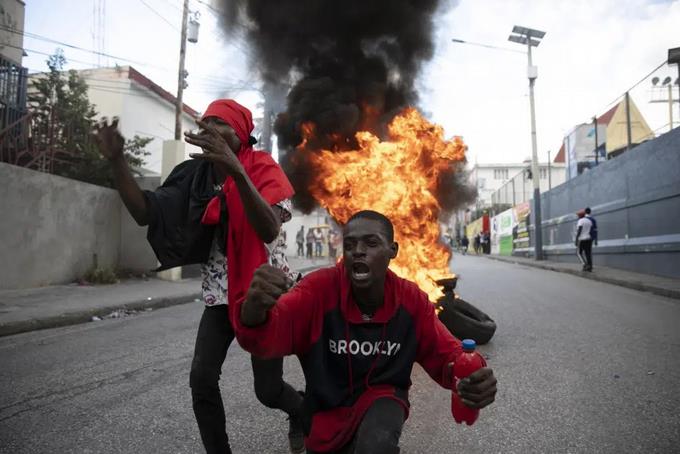Two months after Haiti requested an international armed force to help rid it of gangs that control parts of its capital, the project remains stranded waiting for some country to agree to lead the operation.
“We have not seen movement in this rapid action force,” admits a senior United Nations official who asked not to be named and who insists that this intervention continues to be necessary and urgent.
“We’ll see how this plays out, but Haiti can’t do it on its own, it can’t restore its own security on its own,” he adds.
Until now, the United States and Canada have led the talks to launch this international force, but neither wants to lead it, several diplomatic sources point out.
According to expert Thomas Weiss, a professor at the City University of New York (CUNY) Graduate Center, these two countries have a special interest in stabilizing the situation in Haiti to prevent a massive outflow of refugees to their territories, but the sending in the military would be a politically complicated operation, especially for Washington.
After the withdrawal from Afghanistan, the Joe Biden Administration is reluctant to involve the Army in new operations abroad, Weiss told EFE, who considers it very surprising that the White House did not agree with other governments on the composition of this international force before speak publicly about the matter.
Both Washington and Ottawa are maintaining contacts with other countries and among those interested in contributing there are several African states, but for now no one willing to lead an operation that is expected to be limited in size and time, but very complicated.
complex operation
More than 60% of the Port-au-Prince region is held hostage by armed gangs that kill, kidnap, rob and rape with impunity, while state authorities are powerless against very powerful and well-armed groups.
“This will require serious military intervention and large-scale police work,” Weiss stresses.
In addition, there are doubts about how international troops would be received in Haiti, a country that has been the victim of several foreign interventions and where the UN “blue helmets” deployed between 2004 and 2017 spread cholera and unleashed an epidemic that killed some 10,000 people.
“There are real concerns about how the population is going to accept this force. I am not referring to the gangs, but to the general population, which has seen foreign forces in the past. We are finding mixed opinions,” says the United Nations official.
The plan proposed by the UN is to send a “rapid action force” made up of soldiers from one or more countries to help the government regain control of Port-au-Prince in collaboration with the National Police.
The Secretary General of the United Nations, António Guterres, conveyed this idea to the Security Council on October 9.
